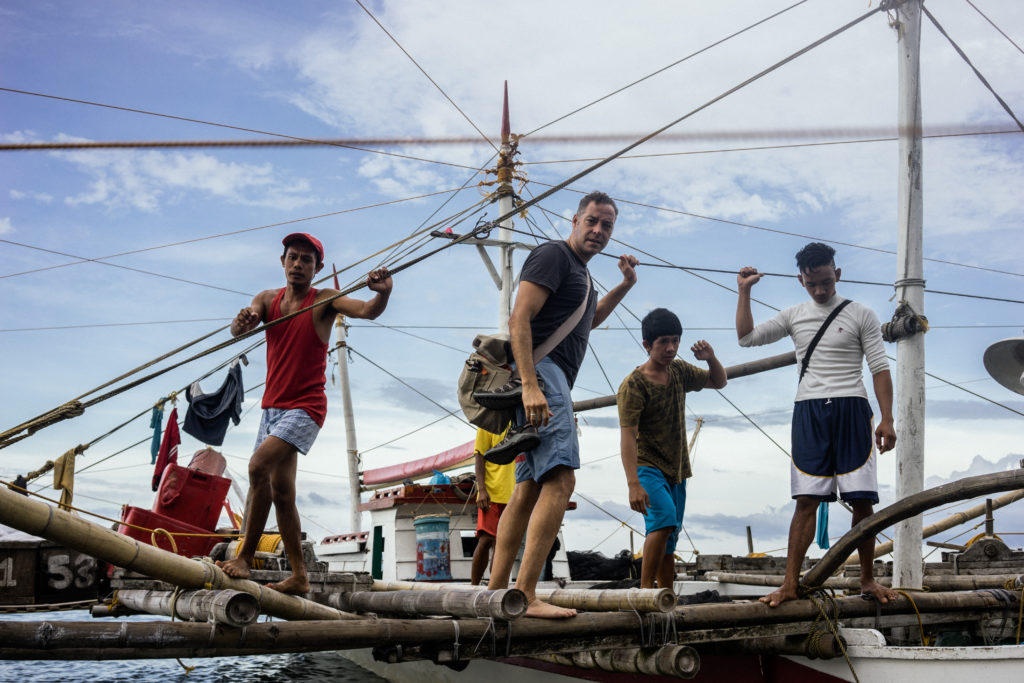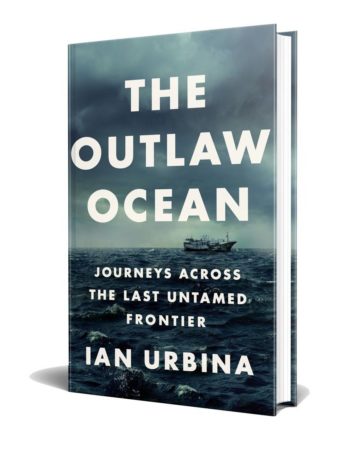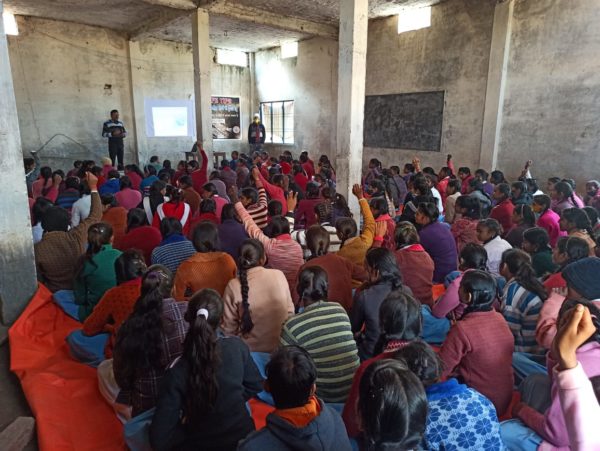Editor’s Note: Free the Slaves is honored this month to highlight the investigative reporting of journalist Ian Urbina of the New York Times, creator of The Outlaw Ocean Project. His award-winning series first appeared in the Times in 2015. For the past four years, he’s been digging deeper about lawlessness at sea and at ports – including widespread human trafficking in the fishing industry. Watch for his dispatches and videos throughout August in the FTS Blog and Free the Slaves social media channels. We begin today with a quick Q&A with Ian about his remarkable work and new book.
What is the Outlaw Ocean Project is about?
The Outlaw Ocean is a journalistic exploration of lawlessness at sea around the world. The project’s goal is to increase a sense of urgency by raising awareness and broadening the public’s understanding of what happens at sea, both above and below the waterline. This reporting touches on a diversity of abuses ranging from illegal and overfishing, arms trafficking at sea, human slavery, gun running, intentional dumping, murder of stowaways, thievery of ships and other topics.
Is there a connection with all of these major issues at sea?
All of these types of abuses, whether they’re human rights abuses, or environmental crimes, stem from a core problem, which is a lack of governance at sea, especially on the high seas. Specifically, there are three ways in which misbehavior happens offshore routinely and with impunity: too few rules, a lack of enforcement, and insufficient awareness of what is happening there. All of these problems are also connected in the sense that they occur with a certain tacit complicity from all of us who live on land. We all are the beneficiaries of the lawlessness on the high seas, where 90 percent of all the products we consume comes by way of ships, and the commercial channels are usually unbothered by the government and therefore, rules. We have been able to access impossibly cheap products that arrive to our shelves with incredible speed. Ninety percent of everything travels by ship, 50 percent of our oxygen is from the ocean, and 70 percent of the protein we consume comes from the ocean: we are deeply dependent on the ocean.
From your experience, what would be the most efficient next steps in helping regulate the lawlessness at sea?
There needs to be more rules, more proactive enforcement of those rules and more awareness of what is happening out there in our communities.

Tell us about your journey of discovery.
Since I was young, I’ve been enchanted by the sea, but it was not until one brutally cold Chicago winter that I acted on my fascination with this vast unknown. Five years into a doctoral program in history and anthropology at the University of Chicago, I decided to procrastinate on completing my dissertation by fleeing to Singapore for a temporary job as a deckhand on a marine research ship called the RV Heraclitus. For three months, the whole time I was there, the ship never left port, and I spent the time getting to know the crew from other ships docked nearby.
This stranded stint portside in Singapore offered my first real exposure to merchant seafarers and long-haul fishermen, and the experience left me riveted by what seemed like a transient tribe of people. These workers are largely invisible to anyone leading landlocked lifestyles. They have their own lingo, etiquette, superstitions, social hierarchy, codes of discipline, and, based on the stories they told me, catalogue of crimes and tradition of impunity. Theirs is also a world where lore holds as much sway as law.
What became especially clear in these conversations is that moving freight by sea is much cheaper than by air partly because international waters are so uncluttered by national bureaucracies and unconstrained by rules. This fact has given rise to all manner of unregulated activity, from tax sheltering to weapons stockpiling. There is, after all, a reason that the American government, for instance, chose international waters as the location for disassembling Syria’s chemical weapons arsenal, for conducting some of its terrorism-related detention and interrogation, and for disposing of Osama bin Laden’s body. Meanwhile, the fishing and shipping industries are as much victims of offshore lawlessness as they are beneficiaries and perpetrators of it.
I never finished my dissertation. Instead, I took a job in 2003 at The New York Times, and over the next decade, as I learned how to be a reporter, I occasionally and unsuccessfully pitched the notion of doing a series about this offshore world. In 2014, my editor embraced the proposal, and wisely nudged me toward focusing more on the people than the fish, delving primarily into the human rights and labor concerns, as the environmental issues would arise, as well, through that lens. The first story from the New York Times’ Outlaw Ocean series ran in the paper in July 2015, with an additional dozen or so pieces published in the subsequent year. I took an additional 15-month leave from the paper, starting in January 2017, to continue reporting for this book.
I set out to report on the people who work in this offshore world. More specifically, much of this reporting ended up focusing on trafficking and some of its various outcroppings: wage theft, sea slavery, debt bondage, murder, sex abuse and others.


